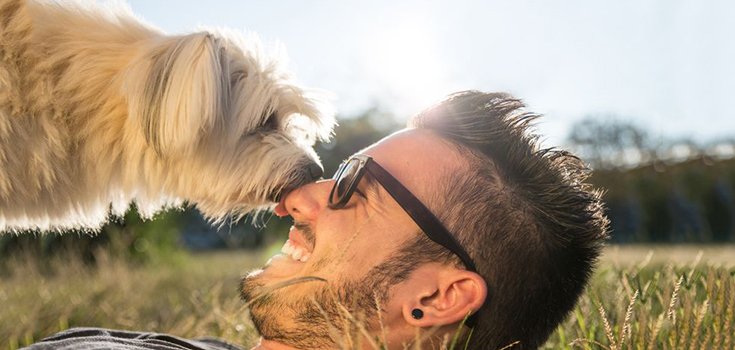Study: Your Dog LOVES You and Prefers Praise over Food

Have you ever wondered if your dog actually loved you, or was just in it for the food? A team of researchers at Emory University in Atlanta recently conducted a study to find out the answer.
What is known as the “Dog Project” began about 5 years ago, in which Emory University neuroscientist Gregory Berns took MRI scans of dogs awake and unrestrained. For the project, he recruited 15 human-dog pairings in the Atlanta area to take part.
Berns, who studies the evolution of dogs and authored the book “How Dogs Love Us: A Neuroscientist and His Adopted Dog Decode the Brain,” said:
“We are trying to understand the basis of the dog-human bond and whether it’s mainly about food, or about the relationship itself.”
For the trial, the dogs were trained to associated 3 different objects with 3 different things: food, praise, and a neutral control. Two dogs dropped out of the experiment, so 13 of them did 32 trials to see if their brains were more responsive to food or praise.
The results showed that almost all of the dogs responded better or equally to praise, while two of the dogs who participated actually preferred the food to their humans.
In the second part of the experiment, dogs were not given any praise, but only food for their efforts. Brain scans showed that most of them were disappointed in the lack of fuss from their owners.
For the final experiment, the dogs were asked to navigate a Y-shaped maze. On one end was their human owner, ready to lavish their animal with praise. On the other end was a bowl of food.
“We found that the caudate response of each dog in the first experiment correlated with their choices in the second experiment. Dogs are individuals and their neurological profiles fit the behavioral choices they make. Most of the dogs alternated between food and owner, but the dogs with the strongest neural response to praise chose to go to their owners 80 to 90 percent of the time.”
The scientist also says that this experiment may lay the groundwork for future interspecies experiments, as dogs and humans share a unique bond within the animal kingdom. [1]
The study was published in Social, Cognitive and Affective Neuroscience.
Additional Sources:
